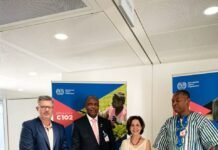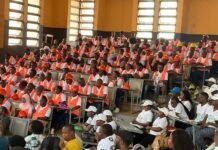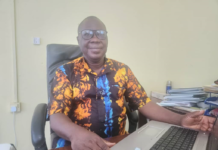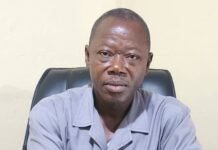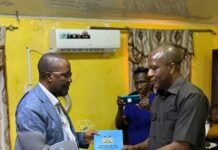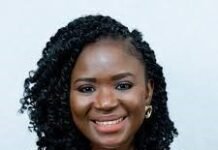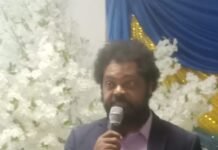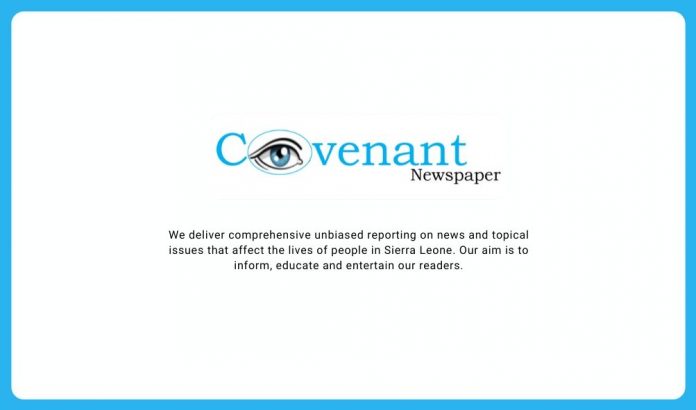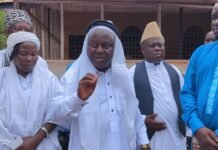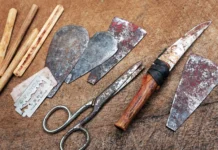By Amara Thoronka
Opposition parties are general known to be active in exposing graft, professional misconduct, abnormalities in governance and immorality across the board. They condemn acts of unconstitutionality with passion and consistency.
They always give the impression that the incumbent is a failure and should be voted out in the next general elections with strong statements of assurance and commitment portraying that they will do better in sustainably developing the country and make the lives of citizens comfortable, easy and rosy.
It is mostly from the opposition you would hear plans to properly fix the country’s economy; provide jobs for greater number of citizens; sustainably address transportation crisis; provide uninterrupted supply of electricity; and fix the perennial problems associated with health, housing, education, food sufficiency, gender parity, human rights, justice, transparency, accountability, good governance and many more.
While in opposition, politicians seem to fully understand all sectoral problems: their root causes and adverse effects on the nation. Many a time, opposition politicians present to the electorate convincing and strategic solutions to all the problems the nation has been experiencing in the hands of the ruling party. Interestingly, greater percentage of voters sometimes fall for the need to vote out the sitting government and entrust incumbency in the hands of the opposition which has promised them positive change in all sectors, far much better than what the ruling government might have done.
In Sierra Leone, falling for such sugar-coated and emotionally appealing expressions of the opposition usually happens immediately after an incumbent has completed its constitutional two-term (ten years) period. Since the introduction of multiparty democracy in the country in 1991 [via the 1991 Constitution] and effectively implemented in 1996 to date, the main opposition All Peoples Congress Party (APC) has been in opposition twice [under the 10-year leadership of late President Alhaji Ahmed Tejan Kabba (1996-2007) and now under the incumbency of President Julius Maada Bio]. On the other hand, the ruling Sierra Leone Peoples Party (SLPP), in post multiparty democracy Sierra Leone, has been in opposition once – during the two-consecutive-term reign of the country’s immediate ex-President Ernest Bai Koroma (2007-2018).
Whenever any of these two most dominant political parties is in opposition, they would create a vivid mental picture in the minds of a good number of Sierra Leoneans that if only they are voted into office they would transform the country into paradise. While in opposition, the APC condemned the leadership of late President Kabba for not repealing Part 5 of the Public Order Act of 1965 which criminalised libel and also castigated the regime for not providing viable solutions to poverty, unemployment, poor health services, hunger, poor road and communication network, transportation crisis, injustice, unconstitutionalities, corruption, fiscal indiscipline and a range of socio-economic and political challenges.
After falling for the “heavenly promises” of the APC, Sierra Leoneans went to the pools in 2007 and voted the SLPP out, ushering the Ernest Koroma’s APC regime to deliver as promised. Due to gains in the road and energy sectors, giving the Anti Corruption Commission (ACC) prosecutorial power to autonomously prosecute corrupt acts among other gains, the electorate in the 2012 elections gave the APC a second chance to actually deliver as promised. Surprisingly, in ten years of leadership, the APC never repealed the 1965 Public Order Act as promised in 2007; in fact, some of its officials were using it to intimidate journalists. The Audit Service Sierra Leone reports, local and international publications and the now published Government white paper which some political analysts described as a “post-mortem” of the APC dispensation, show an alarming scale of widespread corruption which took place during the previous administration. In the time of APC, mining companies and other multinational corporate entities were contributing buoyantly to the country’s purse to a point that the Sierra Leone was once recognised internationally as the fastest growing economy in the sub region. In all of those prevailing opportunities for prosperity, the regime left the country in 2018 literarily challenged with huge foreign and domestic debts and deficiencies in all sectors.
The people resolved to vote out the APC and bring back the SLPP in 2018 under the dispensation of former military regime head of state, Brigadier (Rtd) Julius Maada Wonnie Bio after feeling cajoled by his ‘New Direction Manifesto’ which many believed contained workable and lasting solutions in fixing the country. It is evidential that his leadership has made significant inroads in the fight against corruption even to the admiration of international development partners. Also, his free quality education project has enabled hundreds of poor children access education owing to the fact that their parents could not afford the cost of tuition fees and school items. The nation has also witnessed the repealed of the 55-year-old draconian 1965 Public Order Act under this regime. However, the same ruling SLPP-led government is manifesting things they condemned while in opposition like the establishment of more public institutions and offices, thereby over blotting the budget which stifles the implementation of demanding projects. This government also surprisingly stopped the Audit Service Sierra Leone from auditing COVID-19 funds to ascertain whether they are being spent for the intended purpose.
These two parties that have been exchanging political power batons since the country’s independence from United Kingdom in 1961 are still practicing tribalism or ethnicity and regionalism when it comes to appointment to public offices. When the APC is in power, the Themnes and Limbas predominantly in the north-west of the country hold most of the decision-making positions. Similarly, in the SLPP reign such positions are mostly occupied by Mendes and Sherbros predominantly in the south-east.
This pretentious and emotion-grabbing solution orientation display by the opposition is becoming less appealing to many reasonable people as it was given ten years to streamline existed anomalies in the executive, legislature and the judiciary but it suffices to say a greater part of the job was undone. Some observers and social commentators are of the view that the current main opposition lacks the moral grounds to condemn the incumbent on issues that they did worse; and that the incumbent does not also have the moral footing to now defend what they condemned while in opposition.
But it is reasonably justifiable to say that such a wrong political narrative is supported by the masses that constitute a majority of the electorate and the less privileged of the Sierra Leonean society. They have succumbed to the ethnocentrism of politicians in canvassing votes and political favour. Most electors vote on tribal, regional and partisan considerations; and not on proving track record on service delivery, integrity, trust and experience. In all of these the politicians are triumphing while the masses and Sierra Leone continue to lose big time.
The advice to youths and the masses is to allow politicians to play their game [as they jokingly refer to politics]. Leave the arguments, wrangling and debate for politicians. Your life is very precious to die for politicians. You relationship with others is very essential to betray it for politicians. You can support political parties and politicians, but never say or do that which you will live your whole life regretting.

